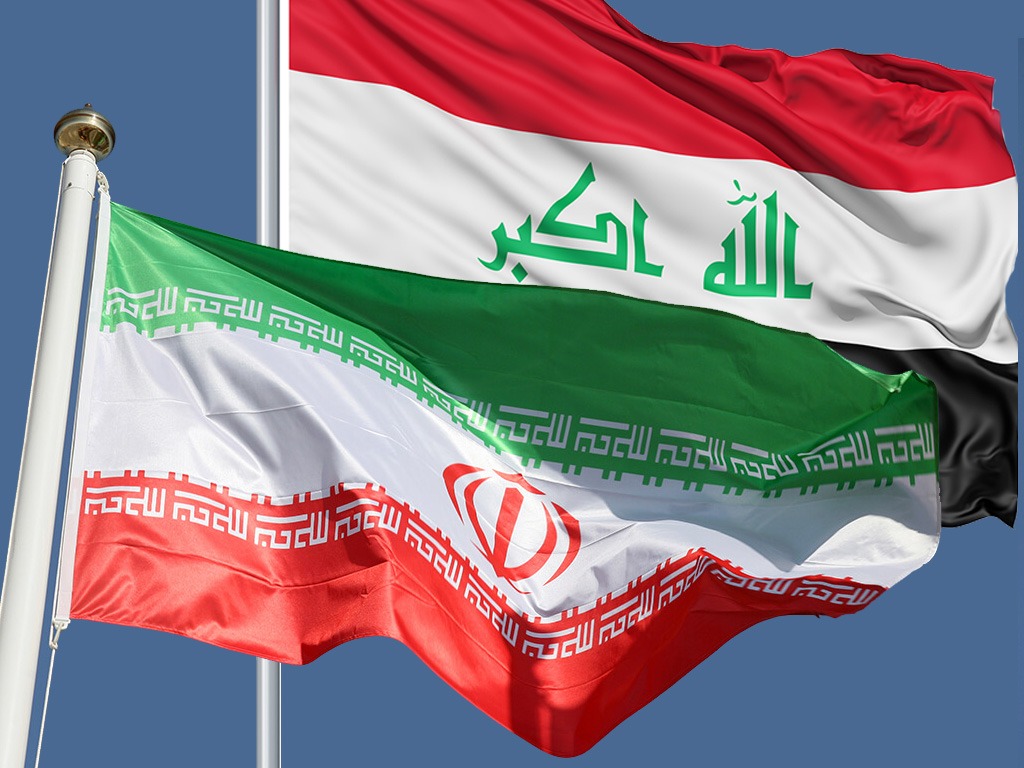Iran and Iraq are the two neighbors which have many common interests and interests, and in the analysis of relations between the two countries reference can be made to a series of stable components.
Politics
After the overthrow of the Ba’athist regime and the political transformation in Iraq, the Islamic Republic of Iran was one of the first countries to support the new political process in Iraq and in the tense years in Iraq, the Islamic Republic tried to support the system that emerged from the new conditions in that country; in this regard, the important political will governed the expansion of Iran-Iraq relations. The traffic of high-ranking officials of the two countries in different governments since 2003 shows the same will. Therefore, there is a warm political connection between Tehran and Baghdad in terms of regional and bilateral positions, which partly goes back to the history of good relations between Iran and most Iraqi groups from all three groups of the Shiites, the Kurds and the Sunnis, which has been reflected and been stable in the political scene.
Economy and trade
Iran has the longest border with Iraq, and the need for neighborliness has led the two countries to move toward a purposeful cooperation and trade relationship after a tense period of war and post-war change in Iraq. For the past two decades, Iran has been a major trading partner with Iraq and the Iraqi Kurdistan region. In addition, companies, investors and various industrial and energy sectors of Iran have had extensive cooperation with Iraq. The Joint Economic Commissions also focus on increasing trade to 20 billion dollars. In addition, the two countries border markets are active in different regions, and Iran is one of Iraq’s major suppliers of electricity. In fact, in view of the economic development of Iraq and strengthening of infrastructures, Iran should be mentioned as a country that can facilitate this process. At the same time, Iran is an important highway connecting Iraq with the outside world, which is effective both in the development of transportation routes and in bilateral and regional trade of Iraq.
Security
When we examine the developments in Iraq over the past two decades, the constructive role of the Islamic Republic of Iran in the stability and security of Iraq can be seen effectively. Perhaps most important was Iran’s unwavering assistance to Iraq in countering ISIS terrorism. It is clear that Iran has played an important and prominent role in liberating the occupied territories of Iraq as well as Syria from ISIS. As the Iraqi authorities have always emphasized. Apart from the issue of ISIS, it should be noted that security between Iran and Iraq is a strategic issue and is always decisive, both in the past and in the future. Therefore, it seems that the two countries pay attention to those points in drawing their regional relations, and the geopolitical position of Iran and Iraq also indicates the importance of security strategies. Of course, if we avoid the background of Iran-Iraq relations and the wars that have taken place between the two sides in the past decades, the security factor between the two countries is still very important and in shaping future prospects, this factor either positive or negative is effective. At the same time, this security factor plays a role in the foreign and security policy strategy of the two countries. In addition to these issues, Iran has always sought to support and assist the stability and integrity of Iraq. Because it can be said that security and stability in Iraq are linked to security and stability in Iran.
Religious and cultural ties
One of the features of Iran-Iraq relations that distinguish the two countries relations from Iraq’s relations with its other neighbors is the historical, religious and cultural ties between Tehran and Baghdad. The intellectual and spiritual connection that the Iranians have with the holy centers of the Shiites in the cities of Karbala, Najaf, Samarra and other parts of Iraq has a historical and religious root that highlights the distinction between those relations. Among the great rituals of the Arbaeen March, the ideological, religious and intellectual ties between the two nations of Iran and Iraq have deepened. The impact of those ties on the dimensions of Iran-Iraq relations has been inevitable. In addition to those issues, the cultural bond between Iranians and the Kurds in Iraqi Kurdistan is inseparable and seems to be part of the realm of the Iranian civilization and culture, and common cultural and civilizational rituals such as Nowruz are part of Iran’s strategic cultural depth with the Kurds.
Therefore, given such multifaceted ties and the needs of the neighborhood between Iran and Iraq, the future of the two countries relations can be described as sustainable and expanding. However, the driving force behind the use of those comparative advantages will depend on active and purposeful diplomacy in the relations between the two countries, which should be placed more seriously on the agenda of the thirteenth government.










0 Comments